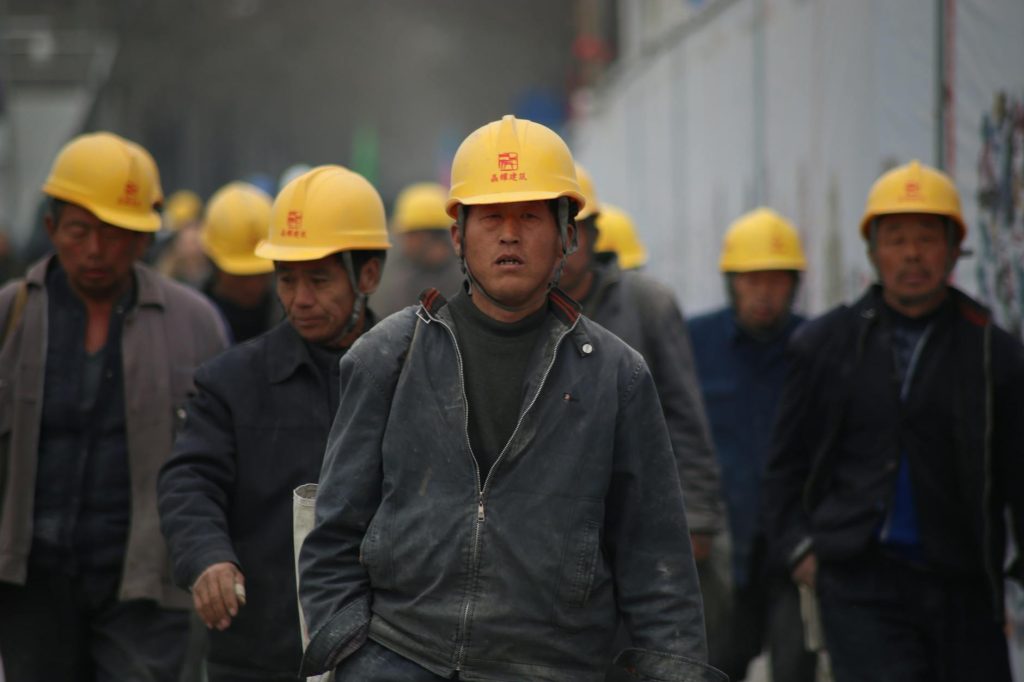Inside the Global South’s Workplaces – Nigeria, China, and India
Comparing Nigeria with China and India reveals how different histories, institutions, and economic structures produce distinct workplace cultures — and how common challenges, such as overwork, precarity, and low well-being, are taking new forms across the global South.

Photo by Pixabay
Nigeria, China, and India represent three distinct models of workplace culture shaped by history, institutions, and economic structure. Nigeria’s informality dominates, leaving millions in precarious jobs. China provides predictability but at the cost of long hours and a strict hierarchy. India, meanwhile, combines modern professionalism with deep inequalities and stressed employees. Together, they demonstrate that growth alone does not guarantee decent work—and why reforming workplace culture is crucial to sustainable development. Comparing Nigeria with China and India reveals how different histories, institutions, and economic structures produce distinct workplace cultures — and how common challenges, such as overwork, precarity, and low well-being, are taking new forms across the global South.
Nigeria’s defining feature is the scale of informality. Recent statistical revisions and labour surveys have shown that informal work continues to dominate employment, even as GDP figures were rebased upward. A large majority of Nigerians earn a livelihood in the informal economy, a fact that alters the incentives of employers and the expectations of workers. This reality weakens formal rules on contracts, social protection and occupational safety, and it produces workplaces that are fluid, often precarious and poorly regulated.
Official statistics mask everyday experience. The National Labour Force Survey reports relatively low headline unemployment rates after methodological changes, yet youth joblessness and under-employment remain points of anxiety for households and firms. Large cohorts of graduates and school-leavers circulate through short-term, low-quality jobs. The result is a workplace culture that prizes personal networks, improvisation and survival skills over formal career ladders and stable employer-employee relations.
China presents almost the opposite picture. Employment is largely formal, backed by enterprise structures, extensive regulation and a dense system of state and party oversight. That does not make workplaces benign. The past decade’s headlines about the “996” culture — working 9 am to 9 pm, six days a week — exposed a norm of extreme overtime across parts of the technology sector. Official law limits working time and caps overtime; however, enforcement has been uneven, and cultural pressures have kept long hours alive in many firms. Recent reporting suggests a small but noticeable effort to curb excessive overtime as burnout and public concern have risen.
This mix of formal employment and intense work demands explains some peculiarities of Chinese workplace culture. Hierarchy tends to be strong. Performance expectations are exacting. Career progression often depends on demonstrating total commitment to the firm’s objectives. Collective values and the power of internal networks remain important, even as market competition pushes firms to organise work on global standards. That structure produces predictability in contracts and benefits for many workers, but it also encourages longer hours and tighter managerial control.
India occupies a middle ground. The services and technology sectors are globally integrated and formalised at scale. The IT and business process industries now contribute a significant share of export revenue and employ millions in structured firms and global capability centres. Rapid growth in those sectors has created a professional class that expects clear career paths, training and mobility. Simultaneously, a large informal economy and regional variation in firm practices mean that workplace norms are far from uniform.
Recent well-being measures point to a worrying pattern across India’s workforce. International surveys show that only a small share of Indian employees report that they are “thriving”, and many workers describe high stress and weak life satisfaction. Those findings do not map neatly onto GDP growth or corporate expansion. They indicate a disconnect between economic dynamism in some sectors and the lived quality of work for large numbers of employees.
Comparing the three countries suggests several modern dynamics at work. First, formality matters for the baseline of rights and expectations. Formal jobs permit clearer contracts, social insurance and grievance channels. Informality leaves workers dependent on ad hoc arrangements and personal ties.
Second, culture and institutions regulate how work time is framed. Societies that prize collective loyalty or where managerial power is concentrated tend to accept longer hours as normal.
Third, sectoral patterns matter. Where high-value services dominate, as in parts of India, firms compete on skills and retention. This can improve workplace practices, but also create intense pressure for results and long hours. Where manufacturing and extractive sectors dominate, as in parts of China and Nigeria, different pressures appear — productivity targets, shift work and compliance issues.
Policy choices and corporate governance shape whether these dynamics produce thriving workplaces or precarious ones. Strong labour inspection, enforceable contracts and social protection can convert long hours into compensated overtime rather than unpaid toil. Investment in management capability and human-resource practice helps firms move from ad hoc personnel management to career development and employee well-being. Firms that measure engagement and training outcomes perform better on retention and productivity. Those actions require both state capacity and corporate willingness.
For Nigeria, the immediate priority is to narrow the gap between formal and informal work. That requires a two-track approach. One track should ease formalisation: reducing administrative burdens for small firms, extending social-protection schemes to informal workers and improving tax and regulatory incentives so that firms see value in registering. The second track should strengthen the practical protections that informal workers need now: access to skills training, portable benefits and better enforcement of basic safety standards. The recent rebasing of national accounts shows the economic heft of sectors that were previously invisible. Policy needs to follow that evidence.
China and India face different but related problems. Authorities in Beijing and corporate leaders must contend with a backlash against excessive working hours. Legal standards exist; stronger enforcement and transparent corporate reporting on hours would help. India’s challenge is to raise well-being across a diverse labour market while preserving the competitiveness of its exports. This calls for workplace reforms that reward skills investment and that give firms incentives to broaden employee support and career progression.
Work is changing fast across these economies. Automation, remote work and global supply-chain shifts will alter what employers and workers expect from each other. Good policy will treat workplace culture as an outcome of institutions rather than a fixed trait. Firms can change what they demand of employees. Governments can design rules that protect the weakest while enabling growth. In countries where informality remains dominant, reform will be slow and political. Pragmatic steps — better data, targeted social protection and incentives for formal hiring — offer the best chance of shifting workplace culture in a humane direction.
If the next decade is to bring higher productivity and better lives, leaders must put workers at the centre of reform. Economic success without decent workplaces will prove fragile. An economy that sells its labour cheaply will struggle to sustain innovation and social cohesion. Policymakers and business leaders in Lagos, Shanghai and Bengaluru should therefore judge success not only by output, but by how work itself is organised and lived.



